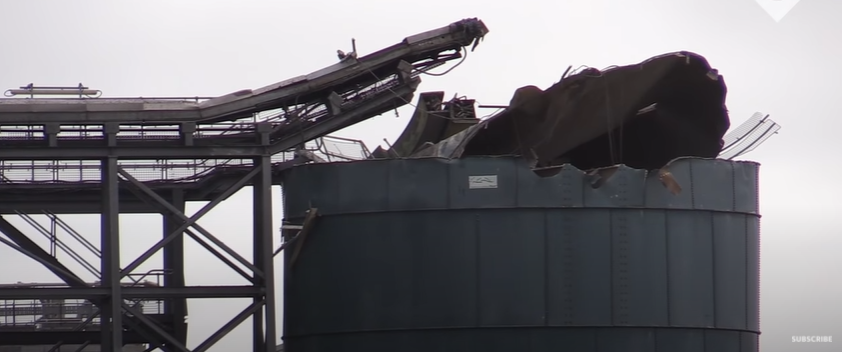In a blast heard more than a mile away last Thursday (3rd December), four people were killed and one injured in an explosion at a wastewater treatment plant in Avonmouth, UK. Whilst investigations to the exact cause of the blast are still underway, it is believed the five people were all working on top of or near a silo that contained biosolids – solid matter recovered in sewage treatment processes and turned into organic soil conditioner. A rescue operation involving search and rescue teams, sniffer dogs and helicopters was launched following the explosion at the Wessex Water, the regional water and sewage treatment business, site in Avonmouth.
Police named the victims as Michael James, 64, Brian Vickery, 63, Raymond White, 57, and Luke Wheaton, 16. It is understood the teenager was an apprentice at Wessex Water.
Chief Executive, Colin Skellett of Wessex Water said: “We are all absolutely devastated by what has happened… We have never had a fatality at Wessex Water before. Despite all of our procedures, systems, protocols and training, this awful event has happened. We are determined to find out what happened and why and we will work with the relevant authorities to do just that.”
Biosolids are “treated sludge” – a by-product of the sewage treatment process. Wessex Water says its sludge is treated in anaerobic digesters – oxygen-free tanks – to produce agricultural fertiliser and renewable energy. Biosolids can produce flammable methane gas when treated with bacteria.
There are several possibilities into what could cause this type of explosion, as detailed in this UK Health and Safety Executive report on risks from sewage sludge drying plants. The cause of the tragic incident will be revealed by the HSE following an investigation.
Featured image is a screengrab of the above video Avonmouth chemical tank explosion: ‘multiple casualties’ after major incident in Bristol courtesy of the Daily Telegraph.
 Interested in this, then you may also like to read…
Interested in this, then you may also like to read…
Read: Ginkgo Bioworks spinout Allonnia launches with focus on using synbio to clean wastewater.
Read: 5 Minutes With… Maria Moræus Hanssen, Chairperson of the Board of Wastefront.
Download: Issue #19 of the Bio Market Insights Quarterly





